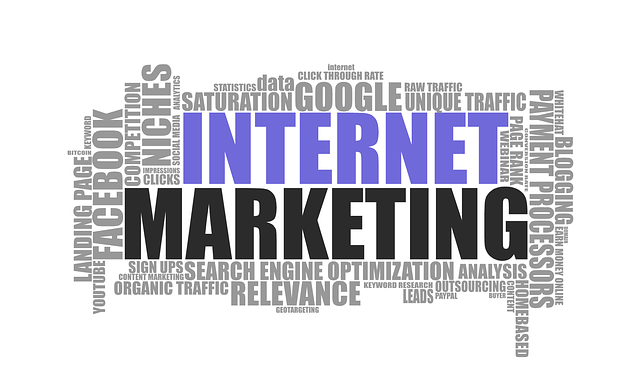In the digital age, the story of a brand often begins with its online presence. Imagine a small business owner, armed with a vision but uncertain about how to bring it to the digital forefront. This is where the power of digital marketing comes into play, transforming visions into digital realities. Many top digital marketing agencies can help guide this transformation.
Now, let’s explore the essential skills needed to embark on this journey.
Understanding Digital Marketing Concepts
To start digital marketing, grasp the core concepts. This includes knowing different digital marketing strategies, from social media marketing to search engine optimization (SEO).

A solid foundation in these concepts helps in crafting effective digital marketing campaigns, making you a valuable asset in the digital marketing landscape.
Mastering Social Media Marketing
Social media is a powerhouse in digital marketing. As a digital marketer, proficiency in creating engaging social media posts and strategies is crucial. This skill involves understanding various social channels, their algorithms, and how to tailor content to each platform, enhancing your digital marketing portfolio.
SEO and Content Marketing Expertise
SEO is vital for online visibility. Skilled digital marketers understand how search engines work and how to optimize content. Pair this with content marketing skills, like content creation and promotion, and you become a content marketer who can effectively boost a brand’s online presence.
Proficiency in Digital Marketing Tools
Familiarity with digital marketing tools, such as Google Analytics and Google Ads, is essential.

These tools provide valuable insights into campaign performance, helping digital marketing professionals fine-tune strategies for better results.
Email Marketing Knowledge
Email marketing remains a powerful tool. Understanding how to create compelling email content and strategies for various client accounts is a key skill for any digital marketing specialist, driving engagement and conversions.
Developing a Personal Brand
As a digital marketing expert, your personal brand is your showcase. Create content, maintain an active professional network, and showcase your skills on your own website. This not only enhances your digital marketing career but also attracts potential clients and employers.
Staying Up-to-Date with Trends
The digital marketing industry is constantly evolving. Staying up to date with the latest trends, new technologies, and best practices through online courses, attending webinars, and networking events is crucial for any aspiring digital marketing manager or consultant.
These skills form the backbone of a successful career in digital marketing. Whether you’re a business owner looking to promote your brand or an individual aiming to become a digital marketing expert, mastering these skills is your first step towards success in the digital world.
How to Start With Digital Marketing: Step by Step
Step 1: Define Your Digital Marketing Goals
Defining your digital marketing goals is the foundational step in learning how to start digital marketing. Whether you’re a budding digital marketer or a business owner venturing into the digital marketing industry, clear goals guide your strategies and measure success.

For instance, if your aim is to increase brand awareness, social media marketing and content marketing might be your focus, leveraging engaging social media posts and informative content. Alternatively, if driving sales is your goal, mastering Google Ads and SEO techniques becomes crucial.
As a digital marketer, these goals shape your digital marketing campaign, influencing the skills you prioritize and develop. Many digital marketers find that setting specific, measurable, achievable, relevant, and time-bound (SMART) goals provides valuable insights and direction.
This approach is especially important in a digital marketing job or role, where results are closely monitored. For those pursuing a career in digital marketing, understanding the importance of goal-setting is a key skill, often emphasized in online courses and digital marketing tutorials.
Staying up to date with the latest trends and technologies, like new tools for analytics or the latest in content promotion strategies, ensures that your goals remain relevant and achievable.
Whether you’re crafting a cover letter for a digital marketing position or building your own brand as a digital marketing consultant, your ability to set and pursue clear goals demonstrates your professional experience and commitment to constantly learning and adapting in a dynamic field.
Step 2: Identify Your Target Audience with Digital Marketing Skills
Identifying your target audience is a critical step in any digital marketing strategy. As a digital marketer, whether you’re a seasoned expert or just starting your career in digital marketing, understanding who your audience is shapes every aspect of your digital marketing campaign. This involves analyzing demographics, interests, and behaviors using tools like Google Analytics, which provides insights into who is interacting with your social media marketing efforts or landing on your pages via Google Ads.
For those learning digital marketing, grasping the importance of a well-defined audience is fundamental. It influences the digital marketing techniques you’ll employ, the language and tone of your social media posts, and even the SEO keywords you target. Digital marketing specialists know that a campaign tailored to a specific audience is more likely to succeed than a generic one.

Business owners venturing into digital marketing must also recognize the value of audience identification. It ensures that your marketing skills are effectively utilized, targeting potential customers with precision. This approach is not only cost-effective but also increases the chances of conversion.
Staying up to date with new technologies and trends is another essential aspect for anyone in a digital marketing role. As the digital landscape evolves, so do the ways in which audiences consume content and interact online. Regularly updating your skills, perhaps through YouTube tutorials or online courses, ensures that your methods of identifying and reaching your target audience remain effective.
For those crafting a cover letter for digital marketing jobs or an entry-level position, highlighting your ability to identify and understand a target audience showcases your relevant skills and hands-on experience. It’s a testament to your ability to adapt and grow in a field that constantly evolves with new technologies and consumer behaviors and digital marketing skills.
Step 3: Choose the Right Digital Marketing Channels
Choosing the right digital marketing channels is a pivotal step for digital marketing experts and those aspiring to learn digital marketing. It’s about matching your message and goals with the platforms where your audience is most active and engaged. Staying up to date with the latest trends and platform capabilities is crucial in this process.

For an SEO expert, this might mean focusing on optimizing content and creating effective landing pages that rank well in search engine results. The right skills in keyword research and SEO optimization are essential in ensuring that your content reaches its intended audience through organic search.
On the other hand, if your strengths lie in soft skills like communication and creativity, social media platforms might be more suitable. These channels allow for direct engagement with your audience and the opportunity to build a community around your brand. The ability to adapt your message to different platforms is one of the transferable skills that are invaluable in digital marketing.
For those charting a career path in digital marketing, it’s important to recognize that no single channel is universally the best. Each business will have different needs and goals, and part of your role as a digital marketer is to identify which channels align best with those objectives. This might involve a combination of email marketing, social media, content marketing, and paid advertising.
Step 4: Develop a Content Strategy
For anyone learning how to start digital marketing, understanding the importance of a content strategy is key. It’s not just about creating content; it’s about ensuring that the content resonates with your target audience and supports your overall marketing objectives. This requires a combination of marketing skills, creativity, and strategic thinking.
A successful content strategy begins with research and planning. Utilize tools like Google Analytics to gain insights into your audience’s preferences and behaviors. This data helps in identifying the types of content that will engage your audience and the best channels to distribute it.

As a business owner or digital marketer, staying up to date with the latest content trends and techniques is crucial. The digital landscape is constantly evolving, and so are the ways in which audiences consume content. Regularly updating your strategy to include new formats or platforms can keep your content fresh and relevant.
Incorporating related keywords into your content is also vital for SEO purposes. This ensures that your content is discoverable by your target audience when they search for topics related to your business or industry.
For those pursuing a career in digital marketing, developing a robust content strategy is a valuable skill. It demonstrates your ability to think strategically and creatively, and it’s a skill that can set you apart in digital marketing jobs.
Step 5: Set Up Your Digital Marketing Tools
Setting up your digital marketing tools is a crucial step for anyone learning how to start digital marketing. Whether you’re a budding digital marketer or a business owner venturing into the digital realm, the right tools can streamline your efforts and enhance your marketing strategies.

For digital marketers, staying up to date with the latest digital marketing tools is part of the job. These tools range from social media management platforms and SEO tools to email marketing software and analytics dashboards. They help in automating tasks, providing valuable insights, and managing various aspects of digital marketing more efficiently.
As a business owner, understanding and utilizing these tools can significantly impact the effectiveness of your digital marketing efforts. Tools like Google Analytics, for instance, offer insights into website traffic and user behavior, enabling you to make data-driven decisions.
Learning digital marketing also involves understanding how to integrate these tools into your overall strategy. This might include using social media scheduling tools to maintain a consistent online presence or leveraging email marketing software to automate and personalize your communications with customers.
Step 6: Optimize for Search Engine Optimization (SEO)
Optimizing for Search Engine Optimization (SEO) is a pivotal step in digital marketing, crucial for both individual digital marketers and teams in the field. SEO is not just a single skill but a range of competencies that are essential for ensuring that your content is visible and ranks well on search engines.
For a digital marketer, developing SEO skills involves understanding how search engines work and what they value in web content. This includes knowledge of keywords, meta tags, link building, and content relevance. It’s about ensuring that your website and its content are not only informative and engaging but also structured in a way that search engines can easily understand and rank.

Digital marketers must also stay up to date with the latest SEO trends and algorithm updates. Search engines like Google frequently update their algorithms, and these changes can significantly impact how content is ranked. Therefore, part of your digital marketing skills should include the ability to quickly adapt your SEO strategies in response to these changes.
Moreover, SEO is not a one-time task but an ongoing process. Regularly reviewing and updating your website’s content, structure, and on-page SEO elements are crucial for maintaining and improving your search engine rankings. This continuous optimization process is a key responsibility for digital marketers and is essential for the long-term success of any digital marketing strategy. So, don’t ask how to start digital marketing any longer.
Step 7: Launch Social Media Campaigns
Launching social media campaigns is an integral part of digital marketing.
It involves creating targeted content and engaging with your audience on platforms where they spend their time. A successful social media campaign requires a deep understanding of your audience’s preferences and behaviors. It’s about crafting messages that resonate and encourage interaction.

Whether it’s through organic posts or sponsored content, these campaigns should align with your overall marketing goals, be it brand awareness, lead generation, or direct sales. Monitoring and responding to audience feedback is also crucial, as it helps in building a loyal community around your brand.
Step 8: Implement Email Marketing Strategies
Email marketing remains a powerful tool in the digital marketer’s arsenal. Implementing email marketing strategies involves more than just sending out emails; it’s about creating personalized, relevant, and timely content that adds value to your subscribers.

Successful email marketing is often segmented, targeting different groups within your audience with tailored messages. This approach can significantly improve engagement rates and conversions.
Additionally, integrating email marketing with other digital strategies, like social media or content marketing, can amplify its effectiveness, creating a cohesive and comprehensive digital marketing campaign.
Step 9: Analyze and Adjust Based on Analytics
Analyzing and adjusting your strategies based on analytics is crucial for the success of any digital marketing campaign. Utilizing tools like Google Analytics, digital marketers can gain insights into campaign performance, user behavior, and website traffic.
This data is invaluable for understanding what works and what doesn’t. Regular analysis allows for timely adjustments to your strategies, whether it’s tweaking your SEO tactics, refining your social media content, or optimizing your email marketing campaigns. The key is to be agile and responsive to the data, ensuring that your digital marketing efforts are as effective and efficient as possible.
Step 10: Explore Paid Advertising Options
Exploring paid advertising options is a vital step in expanding the reach and impact of your digital marketing efforts. Paid advertising, including Google Ads, social media ads, and display advertising, offers a way to target specific audiences with precision.

It’s an effective method to drive traffic, generate leads, and increase sales. The key to successful paid advertising lies in understanding your audience, choosing the right platforms, and creating compelling ad content that resonates with your target demographic.
Monitoring the performance of your ads and adjusting bids, targeting, and creative elements are essential for maximizing return on investment.
Step 11: Continuously Update and Improve Your Strategies
Continuously updating and improving your strategies is essential in the ever-evolving field of digital marketing. The digital landscape is constantly changing, with new platforms, technologies, and user behaviors emerging regularly. Staying informed about these changes and adapting your strategies accordingly is crucial for maintaining relevance and effectiveness. How to start digital marketing? Quickly1
This involves experimenting with new tactics, learning from successes and failures, and staying abreast of industry trends. A commitment to ongoing learning and improvement is what sets successful digital marketers apart, ensuring that their strategies remain innovative and aligned with the latest digital marketing best practices.
